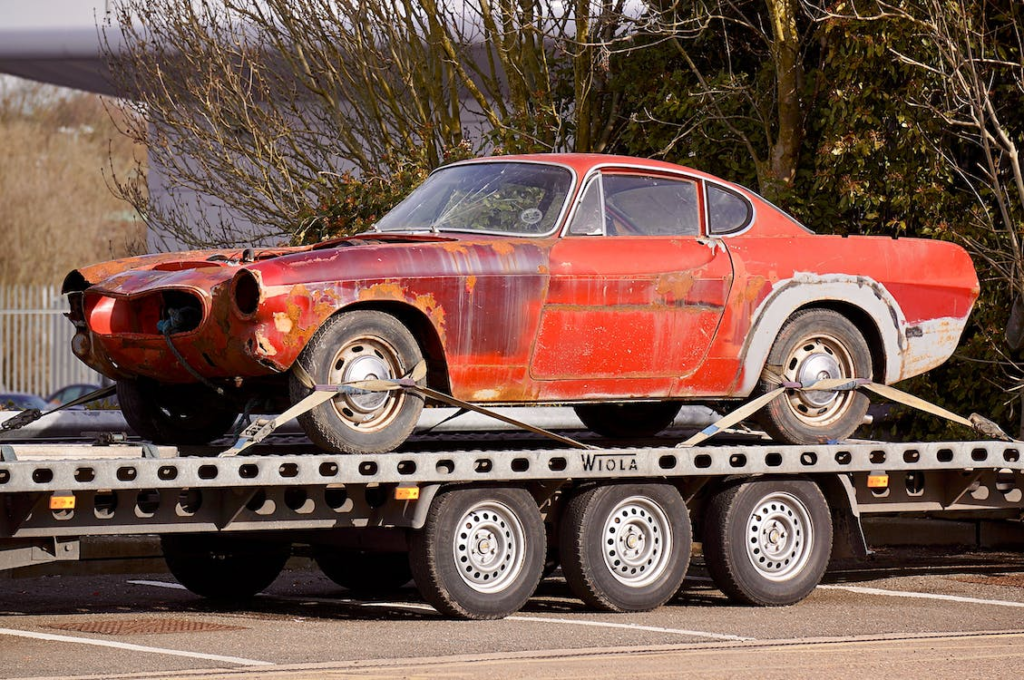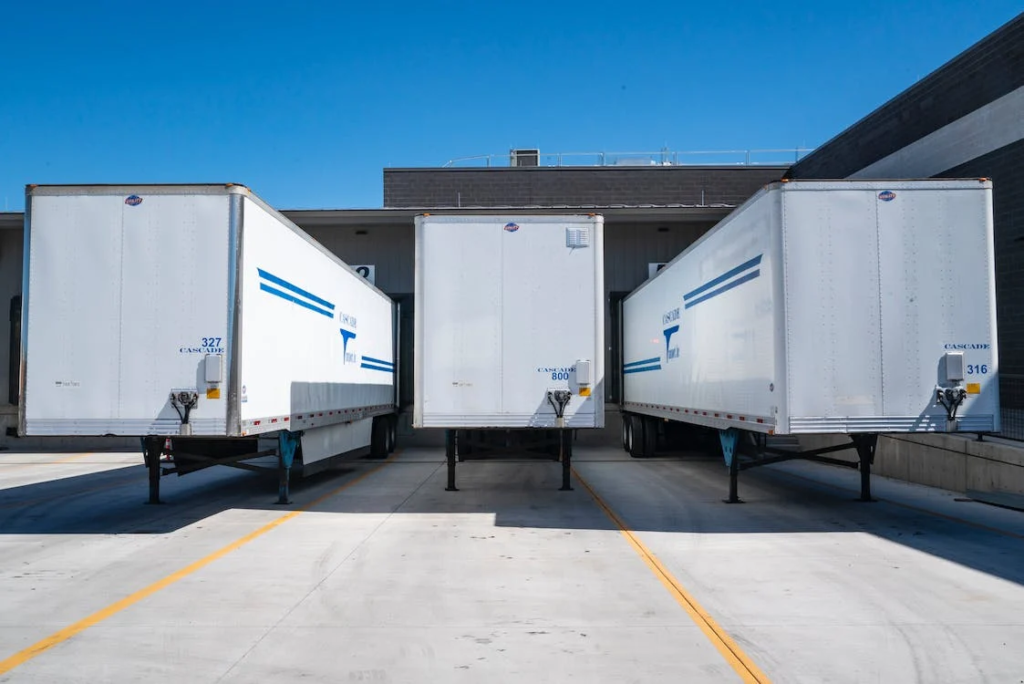The Basics of Trailers: Types, Sizes, and Uses
Buyer’s Guide to Everything You Add Behind Your Rig
This article may contain affiliate links.
Trailers, while often overlooked, represent an essential component in the transport and logistics industry, as well as for many personal uses. They come in a myriad of types and sizes, each designed with specific tasks in mind. From small utility trailers used for hauling home improvement supplies to massive semi-trailers transporting goods across continents, the range and versatility of trailers are truly vast. Understanding the different types of trailers, their sizes and specific uses can make the difference between a smooth, efficient operation and a logistical nightmare. Whether you’re looking to delve into the world of trailers for personal use, or you’re in the transport business looking to optimize your operations, gaining a solid understanding of the basics can be hugely beneficial. This buyer’s guide aims to provide a comprehensive introduction to the world of trailers, offering insights into the diversity of types, sizes and uses that define this versatile tool.
Types of Trailers and Their Uses
To start with, trailers can be broadly categorized into two groups: open trailers and enclosed trailers. Open trailers, as the name suggests, do not have any enclosing sides or top. They are often used for transporting large, bulky items, such as machinery or heavy equipment. On the other hand, enclosed trailers offer protection from weather elements and are ideal for transporting sensitive goods like electronics, furniture and perishables. Each of these categories encompasses a variety of specific types of trailers, designed for particular tasks and needs. In the subsequent sections, we will delve deeper into the different types of trailers within these categories, discussing their sizes and specific uses.
Utility Trailers
Utility trailers, a type of open trailer, are one of the most common and versatile types used today. They come in various sizes, from small ones that can accommodate household goods, to larger models capable of carrying heavy-duty machinery. They are typically used for transporting loose materials like gravel or sand, moving gardening supplies or even hauling small pieces of furniture or appliances. Their open design allows for easy loading and unloading, making them a practical choice for a wide range of tasks. Built with sturdy materials like steel or aluminum, utility trailers are designed to withstand heavy loads and rigorous use.

Flatbed Trailers
Flatbed trailers are another type of open trailer, but with a flat platform instead of an enclosed bed. They are preferred for carrying oversized items or those that cannot be loaded onto regular trailers due to their size or shape. These include large equipment, vehicles and construction materials like lumber or pipes. Flatbed trailers come in various sizes and styles, such as standard flatbeds, drop decks and lowboy trailers. They are typically used in the construction and agriculture industries, as well as for transporting goods that cannot fit into enclosed trailers.
Horse Trailers
Horse trailers are a type of enclosed trailer designed specifically for transporting horses. They come in various sizes to accommodate different numbers of horses, ranging from one-horse trailers to large models capable of carrying multiple horses. Horse trailers typically feature a ramp for easy loading and unloading, as well as partitions to keep the horses separated and secure during transport. They also have ventilation systems and padding inside to ensure the safety and comfort of the animals.
Manufacturers and Customization Options
While trailers can be purchased from various manufacturers, many also offer customization options to cater to specific needs and preferences. From color choices and branding to specialized features like ramps or shelving, customization allows for the creation of a trailer that best fits individual requirements. Moreover, the professionals at ACE Trailers Cleveland remind us that choosing the right trailer manufacturer is crucial for ensuring a high-quality and reliable product. By working with a reputable manufacturer, individuals or businesses can have peace of mind knowing that their customized trailer will meet their needs and exceed expectations. Consider researching and comparing various manufacturers to find the one that offers the best options and quality for your specific needs.
Refrigerated Trailers
Refrigerated trailers, also known as reefers, are a type of enclosed trailer that are specifically designed for transporting perishable goods. These trailers are equipped with a refrigeration unit to maintain a specific temperature inside, making them ideal for transporting goods like fruits, vegetables, meat, dairy products and pharmaceuticals that require a controlled temperature environment. Reefer trailers come in various sizes depending on the cargo’s requirements, and their use is most common in the food and pharmaceutical industries. They play a crucial role in maintaining the cold chain during transport, ensuring that perishable goods retain their freshness and quality from the point of origin to the destination.

Dry Van Trailers
These spacious rectangular trailers are a common sight on highways, often hitched to semi-trucks. They serve as reliable means of transporting a diverse range of goods, particularly those requiring protection from the elements, such as electronics, textiles and non-perishable food and beverage items. Dry van trailers are versatile and can handle most types of cargo, which makes them a popular choice for many industries. They come in a variety of sizes, with the most common size being 53 feet long. The inside of these trailers is often outfitted with straps, e-tracks or other securing devices to keep cargo in place during transport. Some models even come with climate control options, making them suitable for transporting temperature-sensitive items.
Dump Trailers
Dump trailers are a specialized type of open trailer, primarily used in the construction and agriculture sectors. They are designed to transport materials such as sand, gravel and soil, and then unload them via an integrated hydraulic lift system. This design allows for quick and easy offloading of materials, making dump trailers a vital tool in many construction and landscaping projects. Available in various sizes and capacities, they can handle anything from small home renovation jobs to large-scale commercial projects. They are usually constructed from heavy-duty materials to withstand the rough and tumble of construction sites, ensuring longevity and reliability.
In conclusion, trailers come in an extensive array of types, sizes and uses to meet a variety of transport needs. Whether it’s the versatile utility trailer, the spacious dry van trailer, the specialized horse trailer or the temperature-controlled refrigerated trailer, each serves a unique purpose in different industries. Notwithstanding their differences, all trailers have one common goal: to assist in the safe and efficient transportation of goods and materials. It’s essential to understand the distinct features and capabilities of each type to make an informed decision when purchasing or renting. Remember, choosing the right trailer ultimately contributes to the overall efficiency and success of your transportation needs.

1 thought on “The Basics of Trailers: Types, Sizes, and Uses”